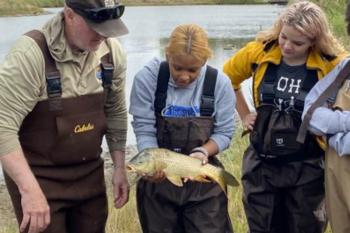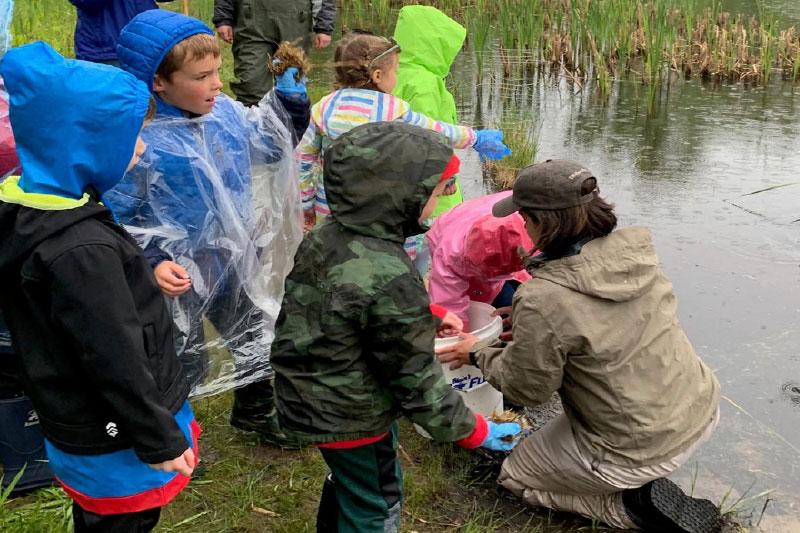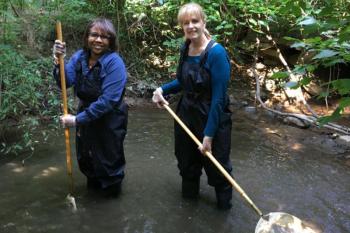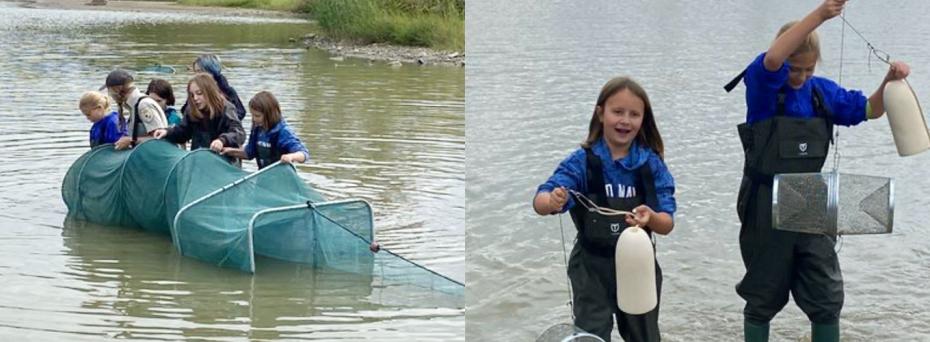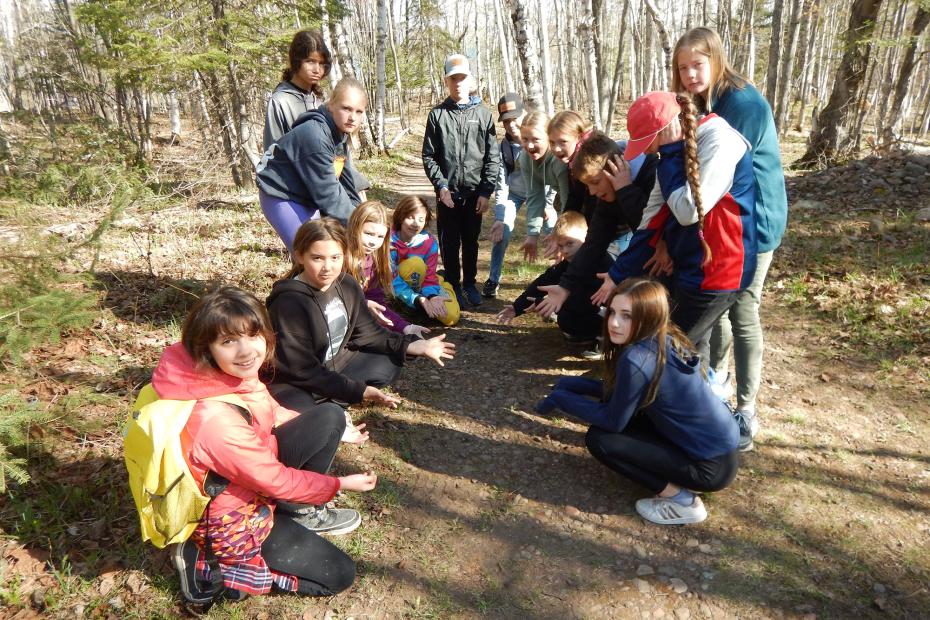Objective, Commitments & Measures
Objective:
5.1. Educate the next generations about the Great Lakes ecosystem and teach people the skills needed to enter the environmental restoration and protection workforce.
Commitments:
5.1.a. Support and implement experience-based learning opportunities to promote Great Lakes stewardship.
5.1.b. Support and implement environmental workforce development programs.
Measures:
5.1.1. Number of youth impacted through education and stewardship projects.
5.1.2. Number of people trained through workforce development programs.
Background
Since GLRI began, GLRI federal agencies and their partners have promoted Great Lakes ecosystem education and stewardship through a focus on engaging educators and youth through place-based experiential learning. Federal agencies and partners have implemented many activities to promote Great Lakes-based environmental education and stewardship, including these programs:
- The Great Lakes Sea Grant Network’s Center for Great Lakes Literacy (CGLL) has created a community of Great Lakes-literate educators, students, scientists, environmental professionals and citizen volunteers dedicated to improved Great Lakes stewardship.
- NOAA’s Great Lakes Bay Watershed Education and Training (B-WET) program promoted locally relevant, authentic experiential STEM learning for K-12 students and teachers. The core component of B-WET projects is the Meaningful Watershed Educational Experience, a learner-centered framework that focuses on investigations into local environmental issues and leads to informed stewardship action.
- National Park Service (NPS) and United States Fish and Wildlife Service (USFWS) delivered place-based learning experiences at National Parks and National Wildlife Refuges with local partners to promote stewardship of Great Lakes ecosystems among community members, especially youth.
- State-led efforts, such as Ohio Department of Natural Resources program, provided hands-on experiences for students in restored wetlands and the Old Woman Creek National Estuarine Research Reserve. Programming includes kayaking excursions focused on teaching students in grades 6-12 about Lake Erie water quality and habitat restoration and providing schools with transportation resources to remove barriers that deter students from accessing outdoor areas and habitats for field trips in Lake Erie watersheds.
Collectively, CGLL, NOAA B-WET, NPS, state programs and other education projects resulted in the training of more than 1,300 educators from FY2019 through FY2022, who in turn have provided hands-on experiential learning to an estimated 220,000 students.
Under GLRI Action Plan IV, GLRI federal agencies and partners will continue to promote Great Lakes-based ecosystem education and stewardship for K-12 school students and community members (for example, courses at parks, nature centers, museums and zoos and aboard vessels). GLRI agencies and partners will continue to support activities centered on providing experience-based learning opportunities, with an emphasis on youth, and continue to develop Great Lakes-literate educators using the essential principles and fundamental concepts included in the Great Lakes Literacy curriculum.
These activities will advance the overall goal of educating students and next generations to foster Great Lakes stewardship, promote conservation and expose and prepare youth for higher education opportunities in natural resource management. Where appropriate, activities will encourage opportunities to incorporate Indigenous Knowledge and cross-cultural learning. GLRI activities will also include evaluation of the effectiveness of education programs.
With new focus under Action Plan IV, GLRI agencies and their partners will implement workforce development programs to train and teach people the skills needed to enter the environmental restoration and protection workforce that supports GLRI projects. These job training programs will work toward a goal of providing additional skilled workers and build a local environmental workforce in the Great Lakes. The programs will provide underemployed residents training in skills needed to accelerate career paths and perform remediation and restoration work.
Continue reading about the Action Plan IV:
Focus Area 5: Objective 5.2. Conduct targeted science to inform and assess Great Lakes restoration


